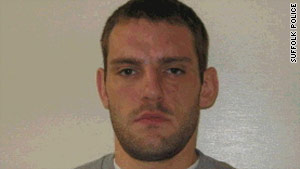By Shakia Harris | 26 March 2010
Student Disability Services is “now hiring” to help Western’s deaf and hard of hearing students.
........
Captionist Karen Porter said once students are registered with the SDS office, if they’re familiar with ASL, they can choose to have an interpreter, or they can have a trained captionist attend classes with them to summarize or take verbatim notes during class.
As a captionist, her ultimate goal is to blend in and not draw attention to the student she’s helping. There are times when she’s mistaken for a student, but she said that she considers that a compliment.
Even though captionists are trained to use specific software for note-taking, it’s hard for them to caption movies or video clips shown in real time, Porter said. If they’re given access to the media ahead of time, it’s not as hard.
Sparta sophomore Cortney Scott is hard of hearing and uses the captioning services.
During Scott’s first semester, an SDS employee recommended that she take vocational rehabilitation classes and have a captionist travel with her to all of her classes, she said.
“When I first came here, I didn’t know how to react to that,” she said.
Once the first day of classes arrived, Scott said she realized how overwhelming classes could be without assistance.
If a teacher lectured while walking around a class or spoke with their back turned, she couldn’t read their lips and missed out on notes, Scott said.
Apart from reading lips, she uses a hearing aid during class, but at times the background noise can be overwhelming.
Scott said her captionists help to keep her motivated in class.
“The services are there,” she said. “You just have to ask for help.”
Cadiz senior Charles Rockhold IV was born deaf and has used both captioning services and interpreters.
Some courses that use symbols, such as math, are easier to comprehend with interpreters, but the lecture courses are easier with a captionist because there’s a chance to read over the notes later, he said.
Rockhold said he appreciates having both services available because he had issues while attending public school.
“It was very, very difficult at times, because most of the time I didn’t know what was going on,” he said.
Scott said it helps when teachers are aware of her hearing impairment beforehand. Sometimes they think she’s not as advanced due to her disability.
“Some people just don’t know how to respond because it’s different.” she said. “I find it fascinating.”
........









